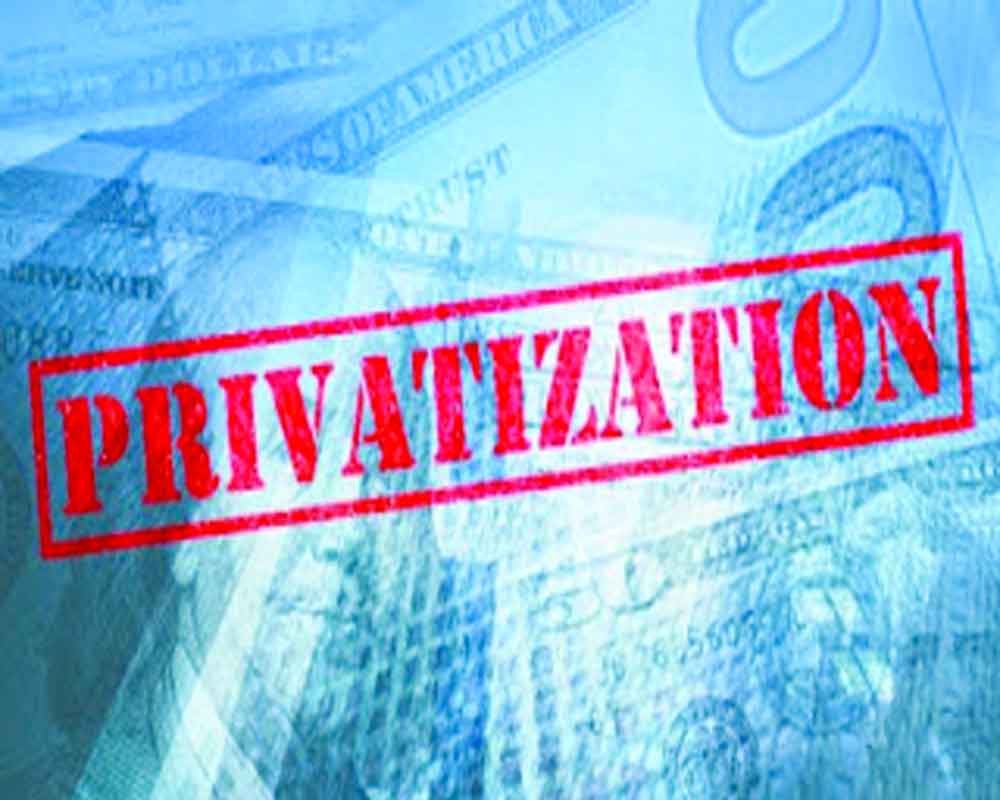There have been setbacks but Govt stays the course
It is heartening to note that the fiasco of LIC initial public offering (IPO) and failure to privatise BPCL has not deterred the Narendra Modi government. Instead of mourning the setbacks or rethinking disinvestment policy, it is continuing with the strategic sale of Ferro Scrap Nigam Ltd (FSNL). The government may also introduce a Bill in the upcoming monsoon session of Parliament to make the privatisation of public sector banks (PSBs) possible. The message is loud and clear: the show will go on.
The Department of Investment & Public Asset Management (Dipam) recently announced that it has received multiple expressions of interest (EoIs) for FSNL privatisation. One hopes that it is brought to the logical conclusion and the company is privatised as soon as possible.
There are three reasons why public sector enterprises or undertakings (PSEs, also called PSUs) should be sold off. The most important reason has been enunciated by Prime Minister Narendra Modi more than once: the business of government is not business. In a country where the state of governance is pathetic, where administrative, police, and judicial reforms are urgently needed, the powers that be are focused on non-essential functions, running PSUs being one of them.
Politicians and bureaucrats ought to emphasize on the ease of living of the citizens, not on the intricacies of running hotels and refineries.
Second, PSUs continue to torment the taxpayer. In December 2021, a financial audit report by the Comptroller and Auditor General (CAG) said that the number of PSUs making profit declined to 224 in 2019-20 from 233 in 2018-19. The total profit earned too declined to Rs 140,976 crore in 2019-20 from Rs 177,758 crore in 2018-19. Unsurprisingly, the return on equity (ROE) of 224 CPSEs also decreased to 15.31 per cent in 2019-20 from 18.69 per cent of 233 CPSEs in the previous fiscal.
The CAG report also highlighted the continuous decline in the return on capital employed (ROCE)—from 11.79 per cent in 2017-18 to 10.47 per cent in 2018-10 to 6.38 per cent in 2019-20.
Public sector banks (PSBs) are also a drain on the economy. Between 2016-17 and 2020-21 alone, the government had to infuse Rs 310,997 crore in PSBs for the purpose of recapitalisation. It needs to be mentioned that this was all taxpayer money.
To what avail? After incurring collective losses for five straight years between 2015 and 2020, PSBs earned a combined net profit of Rs 31,820 crore in 2020-21.
PSB recapitalisation brings us to the third point: there is no way that state-run entities, be it PSEs or PSBs, can be made sprightly companies which fill the exchequer and galvanize the economy, as was the purpose when these were created decades ago. There are numerous CPSEs which received several revival packages running into tens of thousands of crores—but couldn’t get out of the coma. The government should learn from this experience.
It needs to be mentioned here that privatization has never been an easy exercise. When the Atal Bihari Vajpayee government decided to sell Balco to Sterlite in 2001, there was a lot of resistance to the sale. Right from the trade union leaders to the Opposition leaders in New Delhi to the then Chhattisgarh chief minister Ajit Jogi—everyone was against it. Even elements within the Sangh Parivar were opposed to privatization, but the government went ahead and it did happen.
When the Modi government recommenced privatization after a gap of almost two decades and decided to sell Air India, it faced a lot of criticism. Its perseverance paid: today the taxpayer doesn’t have to pay for the losses of the so-called national carrier which ran into tens of thousands of crores. Perhaps it was called the national carrier because the nation carried it!
In a nutshell, the government must keep the privatisation process on, the recent setbacks notwithstanding.


























